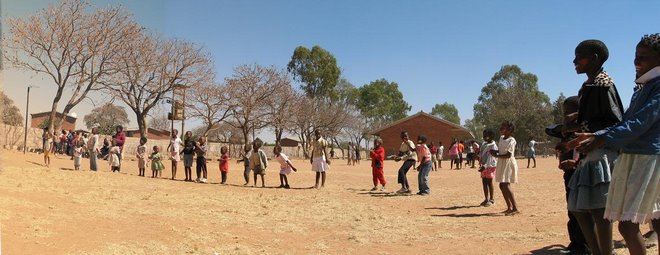(From CNN) -- A runoff has been declared in Zimbabwe's controversial presidential election after officials said main opposition leader Morgan Tsvangirai won 47.9 percent of votes, compared to 43.2 percent for President Robert Mugabe.
Morgan Tsvangirai has argued that a run-off is unnecessary and that the government would rig the outcome.
Since neither Tsvangirai nor Mugabe received 50 percent plus one vote, a runoff election is required by law. The Electoral Commission said Friday it would announce a date for the runoff election later.
But the opposition Movement for Democratic Change has disagreed with the result, The Associated Press reports, adding that MDC polling agent Chris Mbanga said: "We have been overruled. We are in dispute. It is not fair."
The opposition said a meeting is planned for this weekend to decide whether to reverse its stance on the runoff.
Results almost identical to the official ones were reported to CNN Thursday -- the commission's first day of the verification process -- by a senior official with Mugabe's ruling ZANU-PF party who did not want to be named.
A delay in announcing the results of the March 29 election has prompted accusations of vote-rigging and calls from around the world for Mugabe to step down after 28 years in power.
The opposition Movement for Democratic Change has repeatedly said that Tsvangirai won the election but ZANU-PF alleges that the opposition has been engaged in election tampering. ![]() Read about the candidates in the presidential election. »
Read about the candidates in the presidential election. »
Tsvangirai's party says he won with 50.3 percent of the vote, enough to avoid a runoff under Zimbabwean law.
George Sibotshiwe, a spokesman for Tsvangirai, told AP that the MDC believed it would require at least another three days to examine the votes -- in part because 120,000 votes were still unaccounted for.
"We just said to the electoral commission we're not moving forward until we understand where these 120,000 votes came from," Sibotshiwe told AP before the official result release.
The MDC has also maintained that it will not participate in a runoff. If it holds to that, then it would mean Mugabe would retain the presidency, the chief of the electoral commission, George Chiweshe, said.
Reports of violence against opposition supporters have emerged from Zimbabwe amid heightened tensions since the presidential election.
Don't Miss
Zimbabwe's religious leaders called for international help. "People are being abducted, tortured, humiliated by being asked to repeat slogans of the political party they are alleged not to support," according to a statement from a coalition of Christian churches in Zimbabwe released two weeks ago. "In some cases, people are murdered."
Government spokespeople have denied those reports or said they were exaggerated.
A U.S. State Depertment spokesman said there were "serious credibility problems" with the official results and the United States planned to consult with other countries on the situation.
"It's really impossible, as a practical matter right now, to think about how Zimbabwe could hold a runoff election in a situation when everyone admits (that) by any measure, the leading vote-getter is having his party and his supporters regularly harassed and subject to abuse by government officials," said Tom Casey.
CNN and other major news organizations are banned from reporting from Zimbabwe, where there are reports of beatings and intimidation by the government against citizens who support the opposition.
Humanitarian groups told CNN that 105,000 people have been displaced because of the violence, and there were questions about who would come out to vote in the runoff.
Mugabe, 84, is the only ruler Zimbabwe has had since British rule of the former Rhodesia came to end in 1980 and was a hero of the civil war against the white government.
He has been re-elected several times, often either running unopposed or in elections that prompted charges of fraud and state-sponsored terrorism against opponents, and has consolidated his rule over all aspects of Zimbabwean life.
Two weeks before the last presidential election in 2002, which the MDC alleges was stolen, the government charged Tsvangirai with treason. He was acquitted. The MDC accused Mugabe of trying to eliminate him as a challenger.
Zimbabwe faced international sanctions after the 2002 election, including travel restrictions on Zimbabwean officials.
Once known as the breadbasket of southern Africa, it is now difficult to get basic food supplies in Zimbabwe. Inflation has skyrocketed to more than 100,000 percent, while food production and agricultural exports have dropped drastically.
Once revered for providing some of the best education and health care in Africa, it now has one of the lowest life expectancies in the world. E-mail to a friend ![]()
CNN's Nkipele Mabuse in Johannesburg, South Africa, contributed to this report





No comments:
Post a Comment